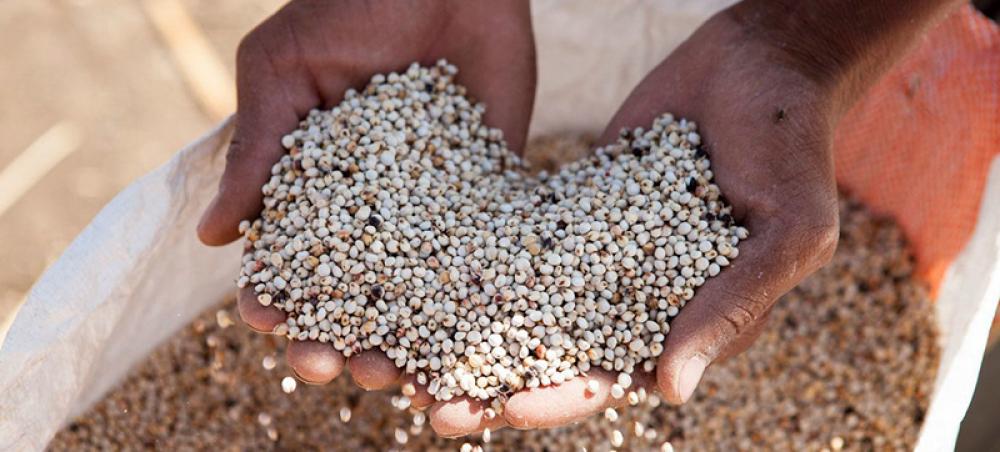Just Earth News | @justearthnews | 12 Sep 2023, 03:16 am Print
 Food Security
Food Security Image: IFAD/Marco Salustro
The UN food security agency on Monday launched an emergency response plan to provide essential support to communities in Sudan grappling with the devastating effects of the ongoing conflict.
Over the coming year, the Food and Agriculture Organization (FAO) will distribute seeds, livestock treatment kits and provide veterinary and fisheries support to boost crop production, improve seed diversification and protect animal stock from depleting.
The initiative is expected to meet the cereal requirements of up to 19 million people for the upcoming 2023 harvest, FAO estimates.
Battle for survival
“Millions of people across Sudan are facing a battle for survival as the food security crisis worsens”, said Hongjie Yang, FAO Representative in the Sudan.
“This emergency response plan aims to provide farming, herding and fishing families with the basics they need to keep production going and feed themselves and their communities.”
The urgency cannot be overstated.
More than 20 million people, representing over 42 per cent Sudan’s population, experienced high levels of acute food insecurity between July and September, nearly double the figure from May last year.
This situation has been hugely exacerbated by the descent since April into all-out war between the Sudanese Armed Forces and the Rapid Support Forces (RSF), which has displaced nearly 5.1 million people within Sudan and across the country’s borders.
News reports said at least 35 people were killed and dozens more wounded following an attack on a crowded market in Sudan’s capital on Sunday, after it was bombarded by a military aircraft.
Plan details
Under FAO’s plan, vulnerable households will receive high quality seeds of cowpea, groundnut, millet, okra and sorghum for the 2024 summer season; and chickpea, cucumber, pigeon pea, tomato and watermelon for the 2023 winter season.
Farmers will also be trained in best practices to enhance handling of post-harvest produce, including important by-products such as manure.
Crucially, amid the intense fighting, FAO’s plan prioritizes mass vaccination campaigns to protect six million sheep, goats and cattle against devastating diseases, including peste des petits ruminants (ovine rinderpest), sheep and goat pox, and foot-and-mouth disease.
To keep local economies going and ensure steady access to quality foods, the UN agency will also support 50,000 people, including 10,000 fishing households, with equipment such as boats and gear.
Multipronged approach
The emergency response plan will deploy a combination of unconditional cash assistance and livelihood support, including seeds and tools, along with training, to reach the most vulnerable households.
This approach aims to address the challenges faced by farmers practicing rainfed agriculture during the dry season (November to May) and the struggles of herding communities dealing with water scarcity, lack of pasture, weakened animal health, and reduced food availability.
To fully implement the ambitious plan over the next 12 months and reach the targeted farmers, herders, and fishers in Sudan’s most food-insecure areas, FAO requires $123 million.
- Caught on camera: Two foreigners assaulted in Israel in an alleged racial attack
- Pakistan: Parents heartbroken after court sides with man accused of kidnapping minor Christian girl
- Pakistan: Trafficked 35 years ago, Bangladesh-born woman approaches court against FIA for offloading her from flight!
- Hindu tea worker found bound and bloodied in Bangladesh garden during general elections; investigation underway
- Brutal killing shakes Bangladesh: Hindu trader hacked to death ahead of polls





-1763561110.jpg)
